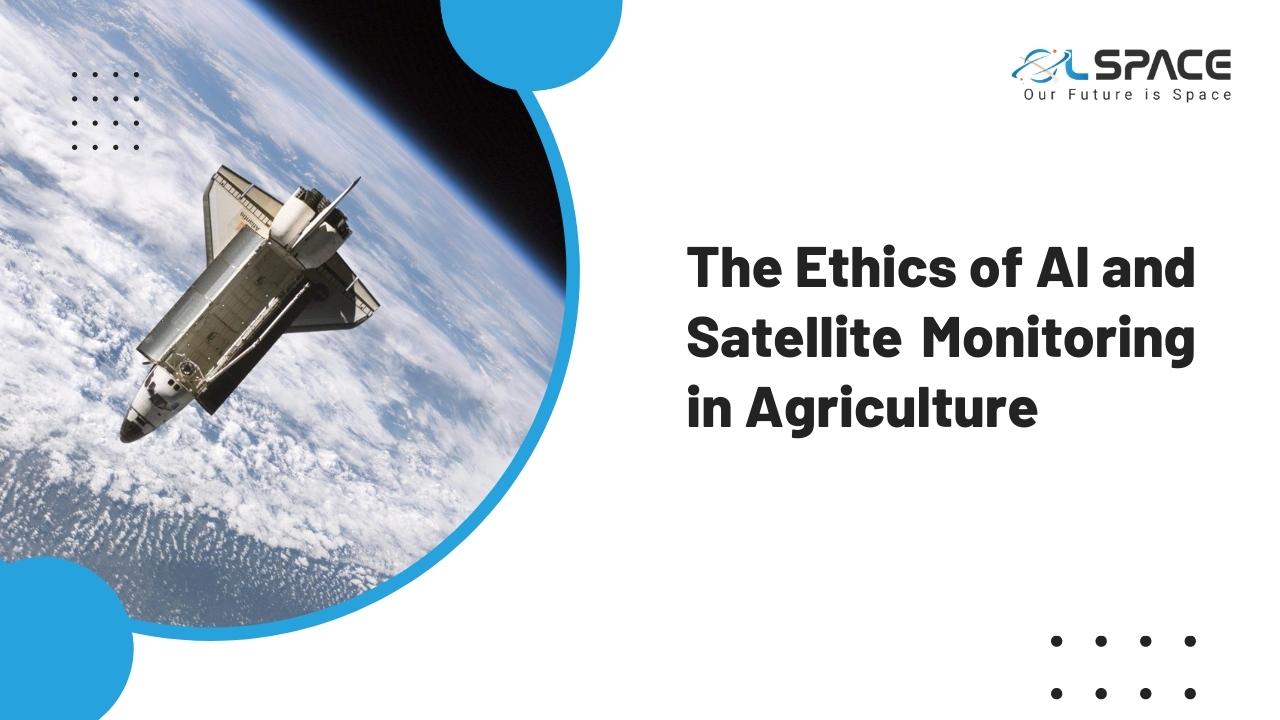24 March 2023
The Ethics of AI and Satellite Monitoring in Agriculture

Sustainability:
AI and satellite monitoring have the potential to increase sustainability in agriculture. By monitoring crop growth and health, farmers can use resources more efficiently, reduce waste, and produce healthier crops. For example, AI can help farmers optimise the use of water and fertiliser by determining the optimal amount of each to apply to each crop. This can save farmers money and reduce the environmental impact of agriculture. However, it is important to ensure that this technology is being used in an environmentally friendly way. The use of AI and satellite monitoring should not lead to increased pollution or destruction of the environment.
Food Security:
AI and satellite monitoring can help improve food security by increasing crop yields and ensuring that crops are healthy and safe to eat. This can be especially important in areas that are prone to droughts, floods, or other natural disasters. For example, satellite imagery can help farmers identify areas that are at risk of drought, allowing them to take action before the drought occurs. However, it is important to ensure that this technology is accessible to all farmers, regardless of their economic situation. If only wealthy farmers can afford to use this technology, it could exacerbate existing inequalities in the agricultural sector.
Bias:
Another ethical concern with AI and satellite monitoring in agriculture is the potential for bias. The algorithms used in AI are only as good as the data they are trained on. If the data is biased, the AI will be biased as well. This can result in unfair treatment of certain groups of farmers or inaccuracies in crop monitoring. It is important to ensure that the data used to train AI is diverse and inclusive, and that the algorithms are regularly audited for bias.
Job Displacement:
AI and satellite monitoring have the potential to automate many tasks in agriculture, which could lead to job displacement for farmers and farm workers. This could have significant economic and social implications, particularly in areas where agriculture is a major industry. It is important to consider how this technology can be used to support farmers and workers, rather than replacing them entirely.
Conclusion:
AI and satellite monitoring have the potential to revolutionis
e the agriculture industry, but it is important to consider the ethical implications. Privacy concerns, data collection, sustainability, food security, bias, and job displacement are all important factors that must be taken into account when using this technology. By addressing these concerns and ensuring that the technology is used in a responsible and sustainable way, we can improve the efficiency and productivity of agriculture while also protecting the rights and interests of farmers and farm workers.
